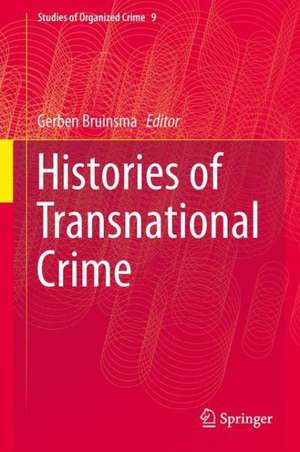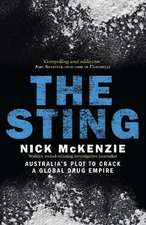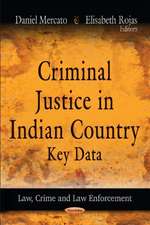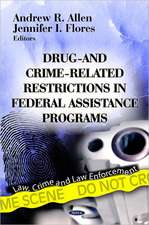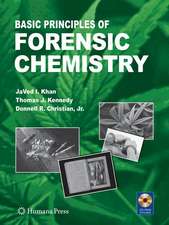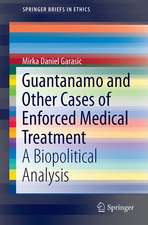Histories of Transnational Crime
Editat de Gerben Bruinsmaen Limba Engleză Hardback – 20 mai 2015
| Toate formatele și edițiile | Preț | Express |
|---|---|---|
| Paperback (1) | 635.80 lei 6-8 săpt. | |
| Springer – 9 oct 2016 | 635.80 lei 6-8 săpt. | |
| Hardback (1) | 642.03 lei 6-8 săpt. | |
| Springer – 20 mai 2015 | 642.03 lei 6-8 săpt. |
Preț: 642.03 lei
Preț vechi: 755.33 lei
-15% Nou
Puncte Express: 963
Preț estimativ în valută:
122.89€ • 133.53$ • 103.30£
122.89€ • 133.53$ • 103.30£
Carte tipărită la comandă
Livrare economică 21 aprilie-05 mai
Preluare comenzi: 021 569.72.76
Specificații
ISBN-13: 9781493924707
ISBN-10: 1493924702
Pagini: 250
Ilustrații: XIII, 188 p. 1 illus.
Dimensiuni: 155 x 235 x 17 mm
Greutate: 0.46 kg
Ediția:2015
Editura: Springer
Colecția Springer
Locul publicării:New York, NY, United States
ISBN-10: 1493924702
Pagini: 250
Ilustrații: XIII, 188 p. 1 illus.
Dimensiuni: 155 x 235 x 17 mm
Greutate: 0.46 kg
Ediția:2015
Editura: Springer
Colecția Springer
Locul publicării:New York, NY, United States
Public țintă
ResearchCuprins
Chapter 1: Criminology and Transnational Crime Gerben Bruinsma.- Chapter 2: Historical Piracy and its Impact Bruce Elleman.- Chapter 3: History of Slavery, Human Smuggling and Trafficking 1860-2010 Marlou Schrover.- Chapter 4: The Arms Traffic in World History Jonathan Grant.- Chapter 5: The Criminalization of Drugs. Drugs Before They Were Criminalized Carl Trocki.- Chapter 6:A History of Transnational Trafficking in Stolen and Looted Art and Antiquities Noah Charney.- Chapter 7: Corporations and Transnational Crime Wim Huisman, Annika van Baar & Madelijne Gorsira.- Chapter 8: Criminal Organizations and Transnational Crime Edward Kleemans.
Recenzii
“Gerben Bruinsma … has assembled a diverse group of experts to provide interesting and thought-provoking chapters for this edited volume. … this book is an excellent addition to the literature on transnational crime. The chapters, individually and collectively, provide an important context for students, researchers, and policy-makers as each attempts a more complete understanding of transnational crime.” (Philip L. Reichel, Criminal Law and Criminal Justice Books, clcjbooks.rutgers.edu, July, 2016)
Notă biografică
Gerben Bruinsma has been director of the Netherlands Institute for the Study of Crime and Law Enforcement (NSCR) in Amsterdam, a national research institute of the National Organization for Scientific Research (NWO) from 1999 till 2014 and, currently senior researcher of the institute. He is also professor of environmental criminology at VU University of Amsterdam (from 2009). In the past he held positions as professor of criminology at Twente University and Leiden University.
He studied sociology and criminology at Utrecht University and finished his doctoral dissertation ‘Crime as a social process. A test of the differential association theory in the version of K-D. Opp’ at the Radboud University Nijmegen. In the 90s he was co-founder and director of the International Police Institute at Twente University. He initiated and developed a bachelor and master program in criminology at Leiden University in 2002. He is former president of the Dutch Society of Criminology and one of the founding fathers of the European Society of Criminology, editor of various journals and had a great number of advisory and board positions in the field. From September 2014 till 2015 he serves as President of the European Society of Criminology. Bruinsma has been a visiting professor of the universities of Cambridge (2006) and Maryland (2014). In 2009 he received the Freda Adler Distinguished International Scholar Award of the Division of International Criminology of the American Society of Criminology. He researched and published on juvenile delinquency, organized crime, police, crime places, criminological theory and methodological issues. He published last year in Criminology, Crime & Delinquency, British Journal of Criminology, Policing, and European Journal of Criminology. With David Weisburd he edited the Encyclopedia of Criminology and Criminal Justice (10 volumes, 5,620 pages), New York: Springer, 2014. His current interests are environmental, theoretical and historical criminology.
He studied sociology and criminology at Utrecht University and finished his doctoral dissertation ‘Crime as a social process. A test of the differential association theory in the version of K-D. Opp’ at the Radboud University Nijmegen. In the 90s he was co-founder and director of the International Police Institute at Twente University. He initiated and developed a bachelor and master program in criminology at Leiden University in 2002. He is former president of the Dutch Society of Criminology and one of the founding fathers of the European Society of Criminology, editor of various journals and had a great number of advisory and board positions in the field. From September 2014 till 2015 he serves as President of the European Society of Criminology. Bruinsma has been a visiting professor of the universities of Cambridge (2006) and Maryland (2014). In 2009 he received the Freda Adler Distinguished International Scholar Award of the Division of International Criminology of the American Society of Criminology. He researched and published on juvenile delinquency, organized crime, police, crime places, criminological theory and methodological issues. He published last year in Criminology, Crime & Delinquency, British Journal of Criminology, Policing, and European Journal of Criminology. With David Weisburd he edited the Encyclopedia of Criminology and Criminal Justice (10 volumes, 5,620 pages), New York: Springer, 2014. His current interests are environmental, theoretical and historical criminology.
Textul de pe ultima copertă
In the past two decades, the study of transnational crime has developed from a subset of the study of organized crime to its own recognized field of study, covering distinct societal threats and requiring a particular approach. This volume provides examples of transnational crime, and places them in a broad historical context, which has so far been missing from this field of study. The contributions to this comprehensive volume explore the causes and historical precursors of six main types of transnational crime:
- piracy
- human smuggling
- arms trafficking
- drug trafficking
- art and antique trafficking
- corporate crime
Caracteristici
Offers a theoretical framework for studying transnational crime, where most existing literature merely describes the phenomenon Systematically describes and uncovers the roots of transnational organized crime as we know it today Places various types of crime within their historical and political economic context Includes supplementary material: sn.pub/extras
